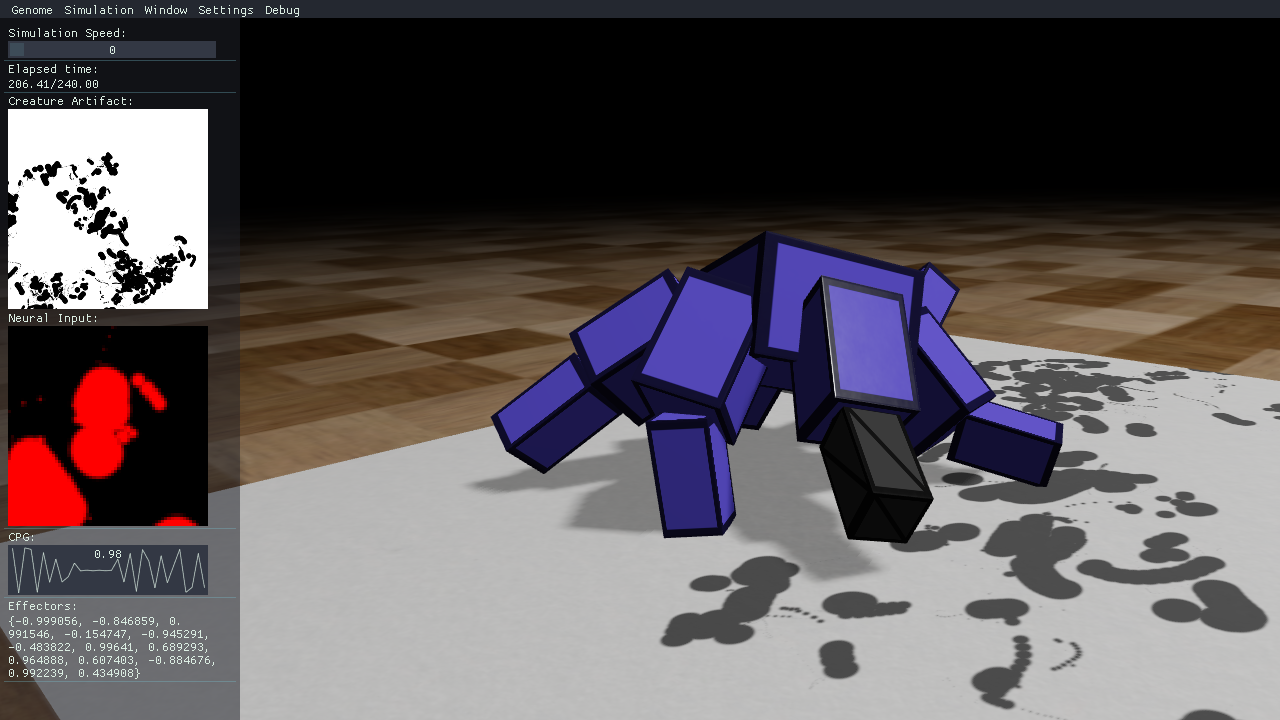Evolving Virtual Embodied Agents using External Artifact Evaluations
Lesley van Hoek, 2020
Abstract. We present neatures, a prototype computational art system that demonstrates the potential of digitally evolving artificial organisms for generating aesthetically pleasing artifacts. Insect-like hexapedal agents act in a virtual environment which they can sense and manipulate through painting. Their cognitive models are designed in accordance with theory of situated cognition. Two experimental setups are investigated: painting with a narrow- and wide perspective vision sensor. Populations of agents are optimized for the aesthetic quality of their work using a custom complexity-based fitness function that solely evaluates the artifact. Our results suggest that a wide-perspective vision may be more suited for maximizing aesthetic fitness while narrow-perspective vision induces more behavioral complexity and artifact diversity. We recognize that both setups evolve distinct strategies with their own merits. We further discuss our results and propose future directions for the current approach.
